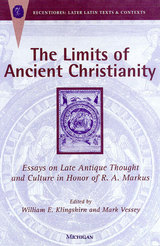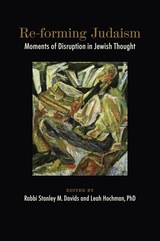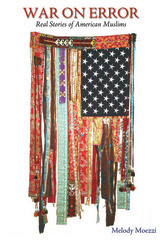
On a Monday in August 2004, three Muslim girls sat with each other on the floor of a mosque surrounded by boxes of books. Two wore traditional Muslim dress, their companion was dressed Western style, but their intention was the same. They were involved in a project to distribute almost 2 million dollars worth of books, DVDs, and videos to over 300 British public libraries. Their aim was not to convert or proselytize but to educate the public about their faith and try to offset the negative image of Islam that has developed since 9/11. Perhaps of more significance was the fact that the books used for the project were not the 'insider' literature produced by the mosques, but works of Western academics that approached their subject in a neutral and informative manner.
Ron Geaves offers a thematic and experiential exploration of the Muslim religion and world that shows it is not some homogenous entity but the dynamic faith you would expect to find in a religion over fourteen centuries old, consisting of over a billion people stretching from the USA to China.
Readers of the book require no previous knowledge of the subject. Chapters are dedicated to individual topics and range from a look at Western media representation of Islam, through controversial issues such as martyrdom, shari'a law, jihad, and the place of women. It examines the ideas of community, Sufism, fundamentalism and other sects within the faith, and also explains the source of many of the interpretations of the Prophet Mohammed, and the importance of the Muslim concept of unity.
By examining the divisions that exist within contemporary Islam, Geaves makes a special contribution to the ongoing examination of today's Muslim communities. By offering a way to better understand this tradition, Geaves helps to counteract the oversimplifications that seem to dominate popular discourse about Muslims and instead shows them as participants in a religious tradition that is still unfolding, struggling to recognize and respect its diversities while seeking to maintain a unity that all parts of it acknowledge as central.

This book provides a concise yet panoramic overview of Islam, unlike most introductory books, which focus mainly on the development of Islamic institutions in the classical period.
To place Islam in perspective, Neal Robinson discusses the problems raised by Western perceptions of Islam and provides a brief account of Islamic history down to the present. He then explains major topics in Islamic worship to help readers understand it as a living faith. Appendices guide the novice through the structure of Arabic names, transliteration, and the Islamic calendar and festivals.

William Klingshirn and Mark Vessey have assembled some of the most influential scholars in the study of Late Antiquity to test the limits of Christianity. The sixteen essays in this collection investigate the ways in which the concept of "limits" (temporal, spatial, ideological, social, and cultural) can help us to understand the texture of Christianity during this formative period. Taken together, the essays in this volume constitute as yet the most sustained study of cultural transformations evoked by Robert Markus's phrase "the end of ancient Christianity."
This timely volume will interest students of early Christian history and theology, as well as historians of the Roman empire and early middle ages. Because it examines a formative period of western civilization, it will also speak to anyone who wonders why Christianity takes the form it does today.
Contributors include Gerald Bonner, Peter Brown, Virginia Burrus, John Cavadini, Elizabeth Clark, Paula Fredriksen, Sidney Griffith, David Hunter, Conrad Leyser, Paul Meyvaert, Oliver Nicholson, James O'Donnell, Philip Rousseau, Frederick Russell, Carole Straw, and Robert Wilken.
William E. Klingshirn is Associate Professor of Greek and Latin, The Catholic University of America. Mark Vessey is Associate Professor of English, University of British Columbia.

these ideas—and the individuals behind them—by delving into historical disruptions that led to lasting change in Jewish thought. A distinguished array of scholars take us
on a journey from the disruptive prophets of ancient times, through rational, mystical, and extremist medievalists, to the impact of Haskalah and early Reform thought in
modernity. Contemporary innovations such as changes in liturgy and music, feminism, and post-Holocaust theology are included, as are insights into Sephardic and North
African experiences. By showing how Judaism forms—then re-forms, and re-forms again—the contributors demonstrate that tensions between continuity and change
have always been part of Jewish life, helping us to both understand the past and contemplate the future.

READERS
Browse our collection.
PUBLISHERS
See BiblioVault's publisher services.
STUDENT SERVICES
Files for college accessibility offices.
UChicago Accessibility Resources
home | accessibility | search | about | contact us
BiblioVault ® 2001 - 2024
The University of Chicago Press









